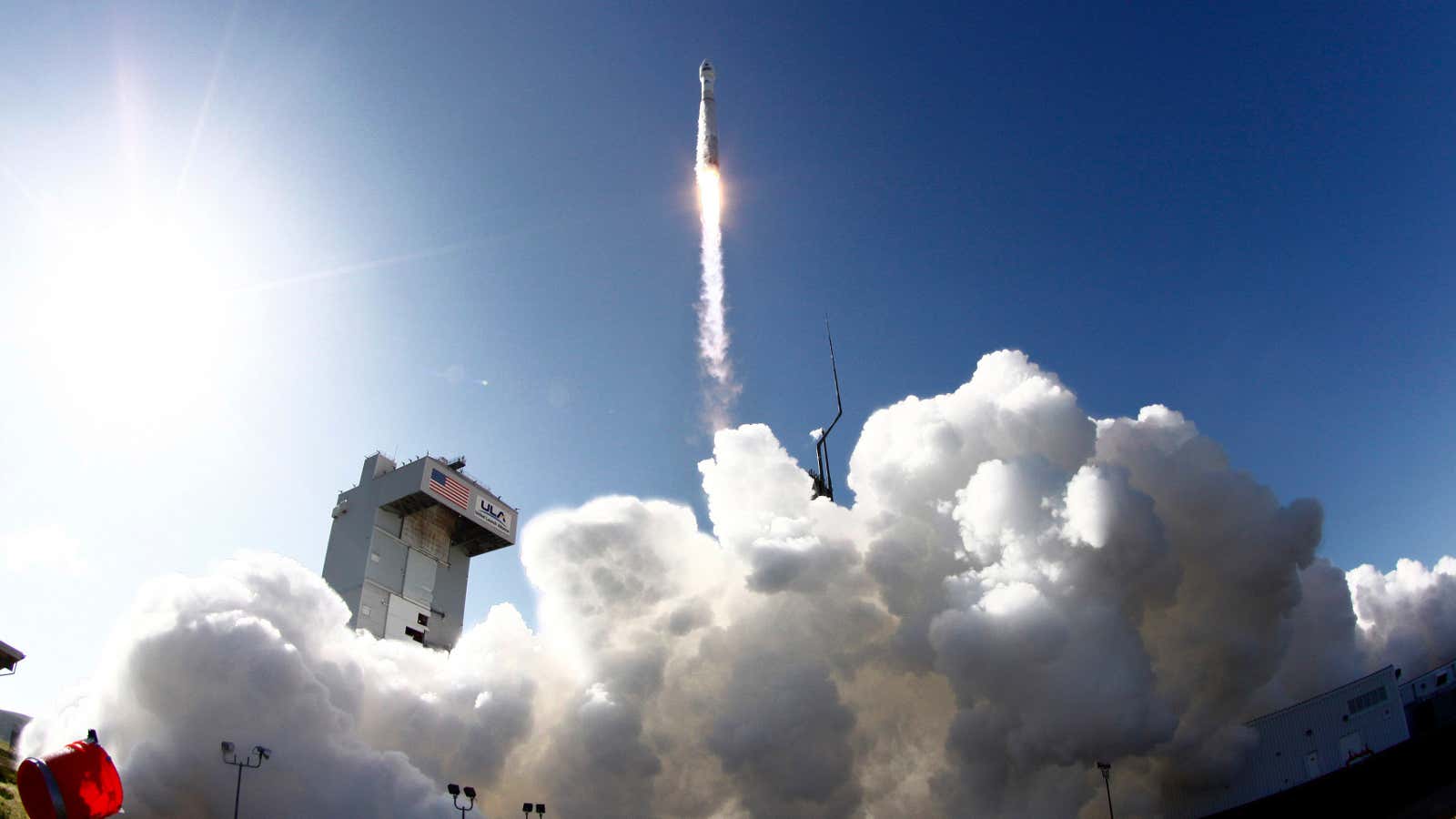The private space race is heating up, with Amazon founder Jeff Bezos’ space firm Blue Origin inking a deal designed to set back the ambitions of Tesla founder Elon Musk’s SpaceX.
The news is fairly straightforward: Blue Origin will be working with United Launch Association (ULA), a joint venture of Boeing and Lockheed Martin, to develop a new rocket engine. But the context is fascinating, drawing battle lines between competing firms and competing countries.
ULA needs a new engine because of politics.
Two kinds of politics, in fact. ULA’s rockets are dependent on engines manufactured in Russia, which until recently, wasn’t a big deal—the only place in space currently worth going to is the International Space Station, a joint project with backers including both the US and Russia. In the wake of Russia’s Ukrainian buccaneering and the rising tensions between the two powers, Russia has threatened to block exports of the engine.
The US doesn’t want to be dependent on Putin’s regime to put astronauts—or spy satellites—in space, prompting a search for alternatives. SpaceX, which is competing with ULA to launch national security satellites and with Boeing to launch astronauts, has made great hay of the Russian connection in its public rhetoric and lawsuits challenging the incumbent space firm.
Blue Origin doesn’t have a good relationship with SpaceX.
You might think that Bezos and Musk, billionaire tech entrepreneurs with a hankering for the extra-planetary, would have a lot in common, but their companies are tough competitors, sparring over potential launch sites and patents on reusable rockets. SpaceX is further ahead than Blue Origin, already launching satellites and winning contracts to launch astronauts. If there’s one thing that could give Blue Origin a boost, it’s a partnership with industry leaders like ULA—and if it takes the sting out of Musk’s complaints, so much the better.
Good news for space start-ups
One apparent loser in this deal is Aerojet Rocketdyne, the leading US rocket engine manufacturer, which has been a key partner of ULA in the past and has been reportedly developing a replacement for the Russian engine. Blue Origin’s ability to offer what is presumably either a better product or a better deal is another example of how new entrants are shaking up a sector traditionally dominated by the giants of the defense-industrial complex .




